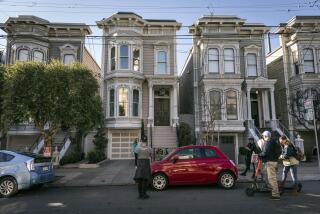Big Brother Was Watching
Big Brother’s house has been torn down. But before a wrecking ball took it to make room for a modern apartment building several years ago, the six-bedroom house at 1090 Page St. had been the first notable music hippie commune.
Built in 1898, it had become a rooming house with an open door policy. Rod Albin started managing the property in 1964, allowing his brother Peter and other students from San Francisco State to take over several of the rooms. One of Peter’s friends was a recorder-player-turned-guitarist named Sam Houston Andrew. Together, they would start Big Brother and the Holding Company, the band that would launch Janis Joplin.
“The house had an old and colorful history,” Andrew said recently. “It had been featured in Look or Life magazine back in the ‘50s. Originally, it was a furniture merchant’s house. Then a brothel.
“I almost wrote a play about that house,” he continued. “It was a beautiful jewel box . . . all these different lives. A juggler. A Japanese Zen Buddhist. An anthropologist. Willie the Wizard, who was into all sorts of electronics, who is now a millionaire. And Harold Wood, who bounced around on a pogo stick.”
The house had an enormous basement that had been a speak-easy during Prohibition. It provided a perfect setting for folk, jazz and blues musicians to join in the development of a “San Francisco sound.”
When guitarist James Gurley moved into the house, he hooked up with Albin and Andrew, and Big Brother was on its way. People would come to dance, and one night, a regular named Chet Helms had an idea.
“He said ‘Hey, I bet we could start charging money for this,’ ” Andrew recalls. In the summer of 1965, the first dance concert at 1090 Page took place. Admission: 50 cents.
By the time Joplin joined, the whole scene had passed out of 1090 Page and into something bigger. Other bands--the Quicksilver Messenger Service, the Sopwith Camel--also had come and gone through the basement. Helms opened a real dance hall, the Avalon. There’s a good case to be made that 1090 Page St. was where it all began.
More to Read
The biggest entertainment stories
Get our big stories about Hollywood, film, television, music, arts, culture and more right in your inbox as soon as they publish.
You may occasionally receive promotional content from the Los Angeles Times.









